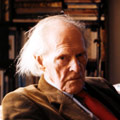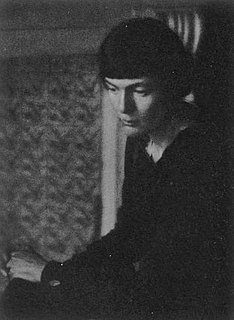A Quote by Henry David Thoreau
Some poems are for holidays only. They are polished and sweet, but it is the sweetness of sugar, and not such as toil gives to sour bread. The breath with which the poet utters his verse must be that by which he lives.
Related Quotes
[The masses] ... must turn their hopes toward a miracle. In the depths of their despair reason cannot be believed, truth must be false, and lies must be truth. "Higher bread prices," "lower bread prices," "unchanged bread prices" have all failed. The only hope lies in a kind of bread price which is none of these, which nobody has ever seen before, and which belies the evidence of one's reason.
There are ancient and modern poems which breathe, in their entirety and in every detail, the divine breath of irony. In such poemsthere lives a real transcendental buffoonery. Their interior is permeated by the mood which surveys everything and rises infinitely above everything limited, even above the poet's own art, virtue, and genius; and their exterior form by the histrionic style of an ordinary good Italian buffo.
When carbon (C), Oxygen (o) and hydrogen (H) atoms bond in a certain way to form sugar, the resulting compound has a sweet taste. The sweetness resides neither in the C, nor in the O, nor in the H; it resides in the pattern that emerges from their interaction. It is an emergent property. Moreover, strictly speaking, is not a property of the chemical bonds. It is a sensory experience that arises when the sugar molecules interact with the chemistry of our taste buds, which in turns causes a set of neurons to fire in a certain way. The experience of sweetness emerges from that neural activity.
It seems to me a purely lyric poet gives himself, right down to his sex, to his mood, utterly and abandonedly, whirls himself roundtill he spontaneously combusts into verse. He has nothing that goes on, no passion, only a few intense moods, separate like odd stars, and when each has burned away, he must die.
With only one life to live we can't afford to live it only for itself. Somehow we must each for himself, find the way in which we can make our individual lives fit into the pattern of all the lives which surround it. We must establish our own relationships to the whole. And each must do it in his own way, using his own talents, relying on his own integrity and strength, climbing his own road to his own summit.
These are crystalline - oftentimes incandescent - translations of Juarroz's powerful metaphysical poems where eternity and silence jut up against a world where “writing infects the landscape” and there are “more letters than leaves” - The kind of match one hopes for where both the translator and the poet are in luck; new poems which don't leak and yet old poems in which the original passion shines.
How we shall earn our bread is a grave question; yet it is a sweet and inviting question. Let us not shirk it, as is usually done.It is the most important and practical question which is put to man. Let us not answer it hastily. Let us not be content to get our bread in some gross, careless, and hasty manner. Some men go a-hunting, some a-fishing, some a-gaming, some to war; but none have so pleasant a time as they who in earnest seek to earn their bread.
Imagination in a poet is a faculty so wild and lawless that, like a high ranging spaniel, it must have clogs tied to it, lest it outrun the judgment. The great easiness of blank verse renders the poet too luxuriant. He is tempted to say many things which might better be omitted, or, at least shut up in fewer words.
In order to create it is necessary to destroy; and the agent of destruction in society is the poet. I believe that the poet is necessarily an anarchist, and that he must oppose all organized conceptions of the State, not only those which we inherit from the past, but equally those which are imposed on people in the name of the future.


































